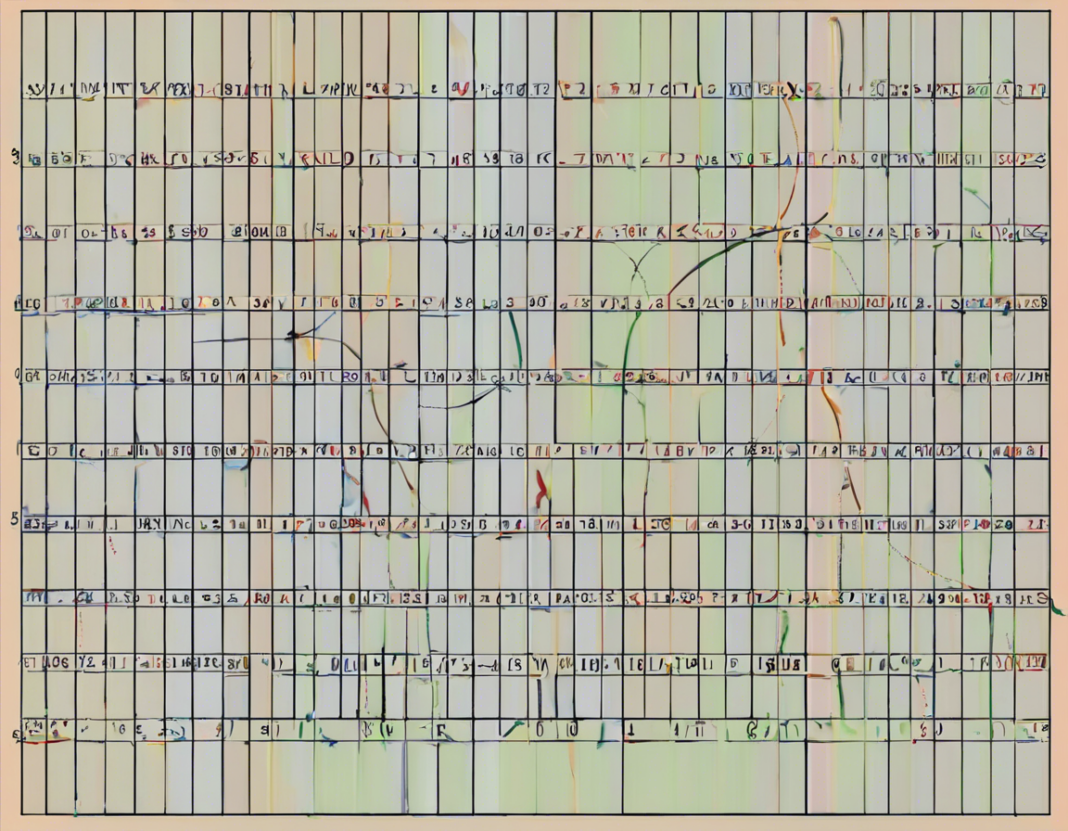Linear algebra is a fundamental branch of mathematics that deals with vector spaces and linear mappings between these spaces. Matrices are a key tool in linear algebra, representing linear transformations in a simple and compact way. Singular matrices are a specific type of matrix that hold importance in various mathematical applications and have unique properties that set them apart from nonsingular matrices. In this comprehensive guide, we will delve into the world of singular matrices, exploring what they are, how to identify them, their properties, and their significance in mathematics and beyond.
What is a Singular Matrix?
A singular matrix, also known as a degenerate matrix, is a square matrix that is not invertible. In other words, a matrix is said to be singular if its determinant is equal to zero. The determinant of a square matrix is a scalar value that can be computed from the elements of the matrix and is used to determine whether the matrix has an inverse or not. If the determinant is zero, the matrix does not have an inverse, making it singular.
How to Identify a Singular Matrix?
To determine if a matrix is singular, you need to calculate its determinant. If the determinant is zero, the matrix is singular; otherwise, it is nonsingular. For a square matrix ( A ), denoted as ( |A| ) or ( det(A) ), if ( |A| = 0 ), then the matrix is singular. This criterion holds for matrices of any size, as long as they are square matrices (having the same number of rows and columns).
Properties of Singular Matrices
-
Invertibility: Singular matrices are not invertible. This means that you cannot find an inverse for a singular matrix, which is essential for solving systems of linear equations and various other mathematical operations.
-
Determinant: The determinant of a singular matrix is always zero. This property distinguishes singular matrices from nonsingular matrices, where the determinant is non-zero.
-
Rank: The rank of a singular matrix is less than its size. The rank of a matrix is the maximum number of linearly independent rows or columns in the matrix. For a singular matrix, at least one row or column can be expressed as a linear combination of the others, leading to a rank that is less than the size of the matrix.
-
Eigenvalues: Singular matrices have at least one eigenvalue equal to zero. Eigenvalues are important in various mathematical applications, and the presence of zero eigenvalues in singular matrices influences their behavior.
Applications of Singular Matrices
-
Solution of Linear Systems: Singular matrices play a crucial role in determining the solvability of systems of linear equations. If the coefficient matrix of a system is singular, the system may have infinitely many solutions or no solutions at all, depending on the specific scenario.
-
Principal Component Analysis (PCA): In statistics and machine learning, PCA is a technique used for dimensionality reduction and data analysis. The covariance matrix of the data is often singular, leading to interesting properties and interpretations in PCA.
-
Optimization Problems: Singular matrices arise in optimization tasks, such as linear programming and quadratic programming. Understanding the properties of singular matrices is essential for devising efficient optimization algorithms and solutions.
-
Control Theory: In control systems engineering, singular matrices appear in the analysis and synthesis of control systems. Stability analysis and controller design often involve computations with singular matrices to ensure the robustness and performance of the system.
Frequently Asked Questions (FAQs)
-
Can a singular matrix have an inverse?
No, a singular matrix does not have an inverse because its determinant is zero, leading to the impossibility of finding a unique inverse matrix. -
Is the zero matrix always singular?
Yes, the zero matrix, where all elements are zero, is always singular because its determinant is zero, indicating that it is not invertible. -
Do singular matrices have unique properties compared to nonsingular matrices?
Yes, singular matrices have distinct properties such as zero determinant, lack of invertibility, and specific relationships with eigenvalues that set them apart from nonsingular matrices. -
How do singular matrices affect the solution of linear systems of equations?
The presence of singular matrices in the coefficient matrix of a system of linear equations can indicate scenarios where the system has infinitely many solutions or no solutions, posing challenges in solving the system. -
Are there real-world applications where singular matrices are commonly encountered?
Yes, singular matrices appear in various fields including statistics, optimization, control systems engineering, and computer graphics, where their unique properties are leveraged for specific calculations and analyses.
